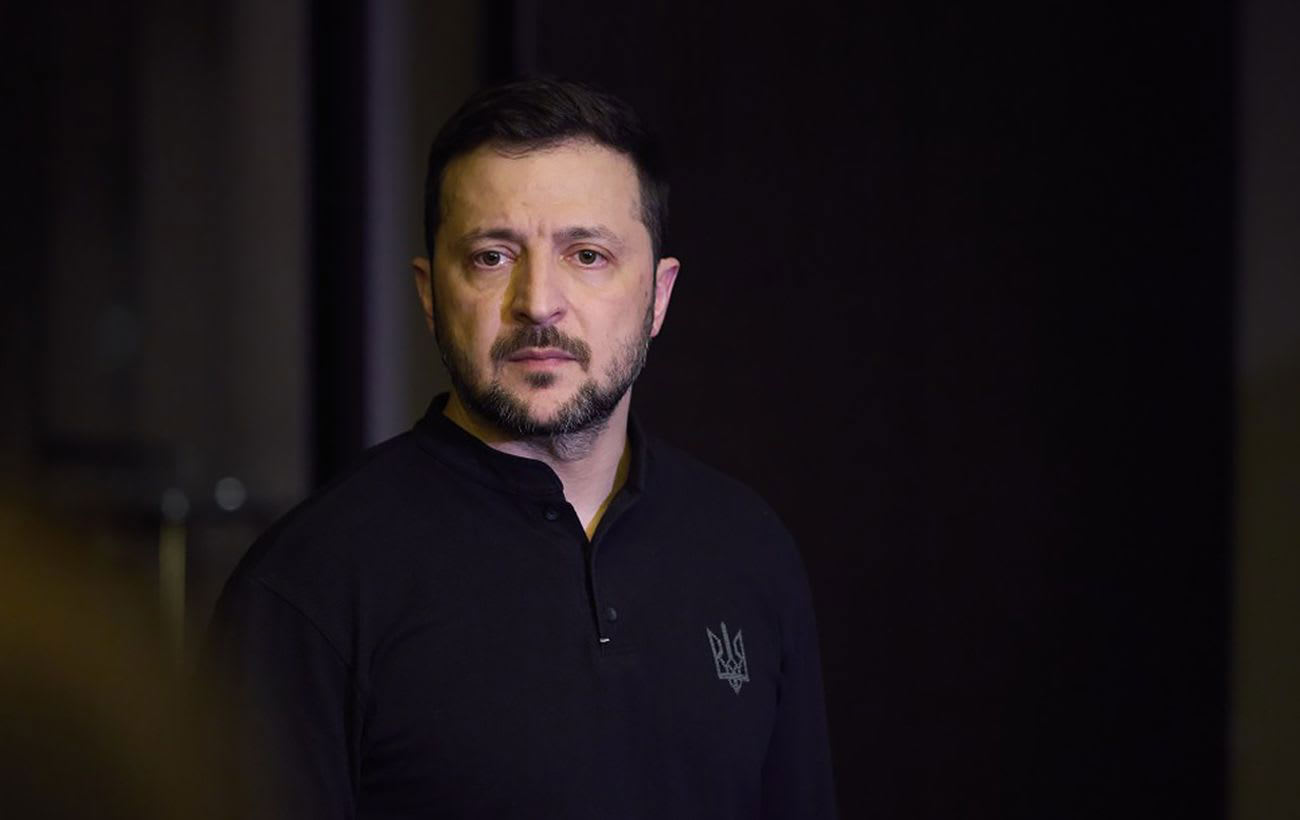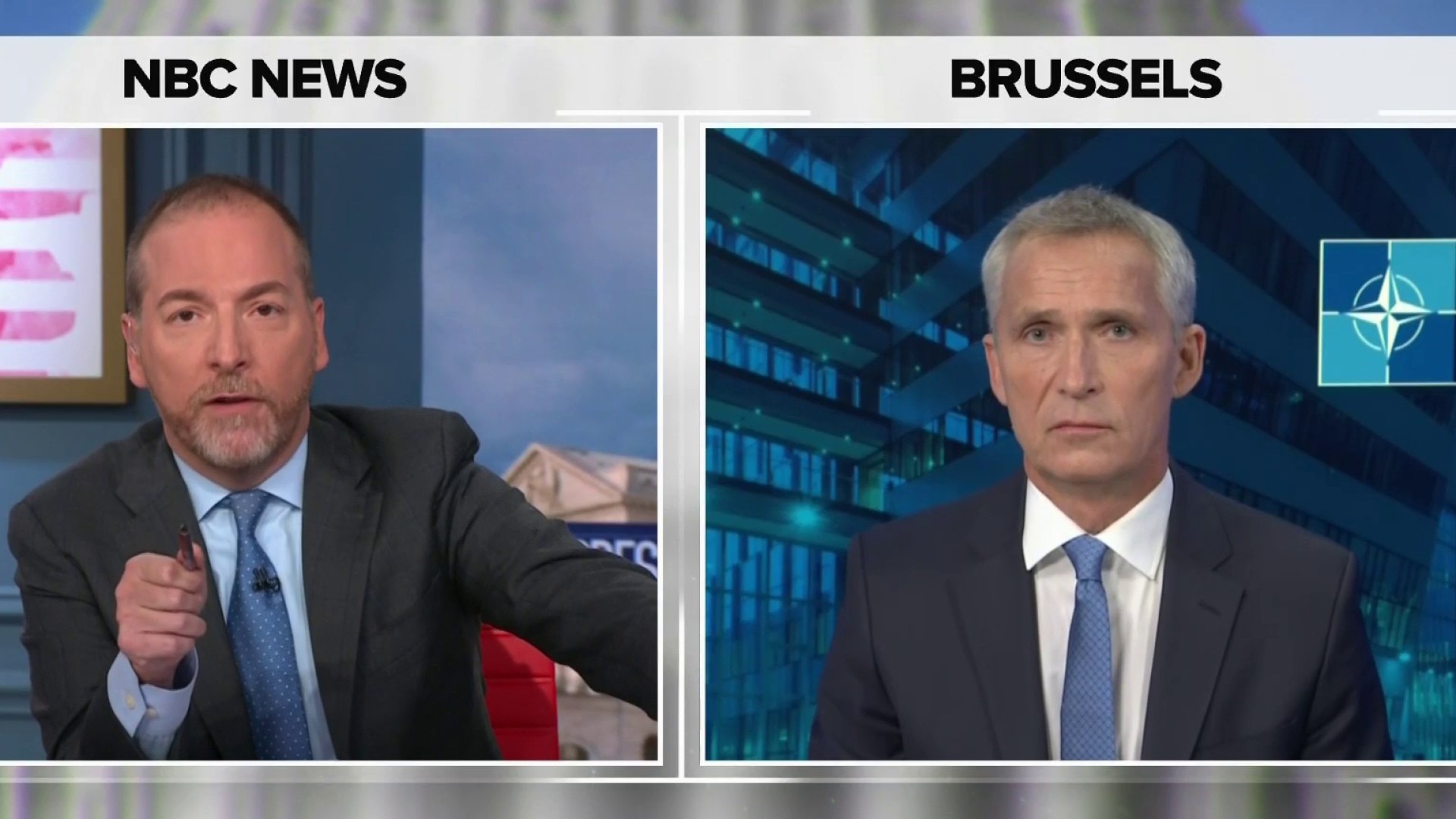NATO Membership For Ukraine: Trump's Doubts And Their Significance

Table of Contents
Trump's Stated Reasons for Opposing Ukrainian NATO Membership
Trump's opposition to Ukraine's NATO aspirations stemmed from several interconnected factors. His stated reasons, often delivered via tweets and public statements, revealed a complex interplay of perceived financial burdens, security concerns, and domestic political calculations.
Burden-Sharing Concerns
Trump repeatedly questioned whether NATO allies, particularly European members, were adequately contributing financially to the alliance. He consistently voiced concerns that admitting Ukraine, perceived as economically weaker than existing members, would further strain the already contentious burden-sharing equation.
- Trump's focus on financial contributions reflected his "America First" policy, prioritizing perceived US national interests above collective security.
- This stance largely ignored the substantial strategic benefits of expanding NATO's defensive perimeter eastward, thereby deterring potential aggressors.
- Critics argued that his emphasis on financial contributions overshadowed the broader security implications of a potential Russian invasion and the crucial role of NATO in deterring such aggression. The potential costs of inaction, including humanitarian crises and military interventions, were largely overlooked in this narrative.
Concerns about Russian Aggression
While acknowledging Russia's aggressive actions towards Ukraine, including the annexation of Crimea and the ongoing conflict in Donbas, Trump also expressed skepticism about NATO's ability to effectively deter further Russian aggression, particularly if Ukraine were to become a member.
- He suggested that NATO expansion could provoke a stronger, more escalatory Russian response, potentially leading to direct conflict with the alliance.
- This viewpoint arguably downplayed the crucial deterrent effect of NATO membership, which provides a collective security guarantee under Article 5.
- Critics countered that a strong NATO presence, including the deployment of troops and advanced weaponry, is precisely what is necessary to deter further Russian expansionism and safeguard Ukrainian sovereignty. The lack of a robust deterrent, they argued, only emboldened Russia.
Domestic Political Considerations
Trump's opposition to Ukrainian NATO membership was also interpreted through the lens of his domestic political priorities. Some analysts suggest his stance reflected an attempt to appease segments of his electorate who were either sympathetic to Russia or deeply skeptical of international alliances and interventions.
- This interpretation highlights the potential influence of domestic politics on critical foreign policy decisions, often overriding strategic considerations.
- It raises concerns about the vulnerability of foreign policy to short-term political calculations and the lack of a consistent, long-term approach to international relations.
- The perception of inconsistency in his foreign policy approach, notably regarding alliances and commitments, damaged US credibility on the world stage.
The Geopolitical Significance of Trump's Doubts
Trump's doubts regarding Ukrainian NATO membership had far-reaching geopolitical consequences that extended beyond the immediate bilateral relationship. His actions and rhetoric cast a long shadow on NATO's effectiveness and transatlantic security.
Impact on NATO Cohesion
Trump's public questioning of NATO's efficacy and his reluctance to unequivocally commit to Article 5 (collective defense) created significant uncertainty and eroded trust among alliance members. His stance on Ukraine exacerbated these existing tensions.
- This undermined NATO's credibility as a reliable security guarantor, particularly in the face of escalating Russian aggression.
- It created divisions within the alliance, weakening its collective response capability and potentially hindering its ability to act decisively in a crisis.
- It emboldened not only Russia but also other revisionist powers that challenge the existing international order.
Implications for Ukrainian Security
Trump's opposition directly impacted Ukraine's security outlook, leaving the country more vulnerable to further Russian aggression. The lack of a clear commitment to its NATO membership created considerable uncertainty about the level and reliability of Western support.
- This heightened vulnerability contributed to the conditions that ultimately led to the 2022 Russian invasion.
- It hindered Ukraine's ability to secure crucial military and economic assistance from NATO allies, who might have been hesitant to commit significant resources without a clear pathway to membership.
- This tragic event underscored the critical importance of strong and predictable alliances in deterring aggression and maintaining international peace and security.
Long-Term Effects on Transatlantic Relations
Trump's skepticism towards NATO and his ambiguous position on Ukraine had lasting consequences for transatlantic relations. It raised serious questions about the future of the alliance and the reliability of US security commitments.
- It damaged US credibility as a reliable partner within the alliance system, creating doubts among European allies.
- It spurred renewed debate within Europe about the future of its own security architecture, including the potential for greater European strategic autonomy.
- It highlighted the critical need for fostering strong, bipartisan support for international alliances and ensuring a consistent, long-term approach to foreign policy.
Conclusion
Former President Trump's doubts regarding NATO membership for Ukraine had profound and lasting geopolitical implications. His stated reasons, encompassing burden-sharing concerns, anxieties about Russian aggression, and domestic political considerations, significantly impacted NATO cohesion, Ukrainian security, and transatlantic relations. Understanding the significance of these doubts is crucial for navigating the ongoing challenges to European security and for shaping future strategies regarding NATO membership for Ukraine and other aspirant nations. A strong and unified approach to NATO membership for Ukraine, coupled with clear and predictable security guarantees, is essential to deter future aggression and maintain global stability. Continued discussion and analysis of the complexities surrounding NATO membership for Ukraine are vital for informed policymaking and for ensuring a secure future for the region and the alliance as a whole.

Featured Posts
-
 Trumps Stance On Ukraines Nato Membership A Critical Analysis
Apr 26, 2025
Trumps Stance On Ukraines Nato Membership A Critical Analysis
Apr 26, 2025 -
 Beyond Disney 7 Top Orlando Restaurants For 2025
Apr 26, 2025
Beyond Disney 7 Top Orlando Restaurants For 2025
Apr 26, 2025 -
 Abb Vies Q Quarter Number Results Exceed Expectations New Drug Sales Drive Growth
Apr 26, 2025
Abb Vies Q Quarter Number Results Exceed Expectations New Drug Sales Drive Growth
Apr 26, 2025 -
 Abb Vie Abbv Stock Higher Profit Guidance Reflects Success Of Newer Drugs
Apr 26, 2025
Abb Vie Abbv Stock Higher Profit Guidance Reflects Success Of Newer Drugs
Apr 26, 2025 -
 127 Years Of Brewing History Ends Anchor Brewing Company To Shut Down
Apr 26, 2025
127 Years Of Brewing History Ends Anchor Brewing Company To Shut Down
Apr 26, 2025
